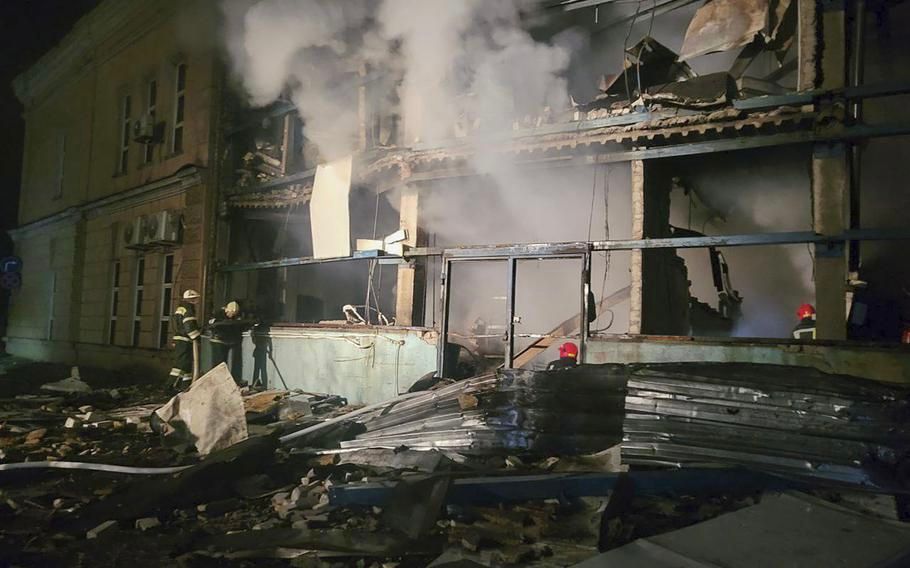Investigation Launched into Fatal Russian Missile Strike at Ukrainian Ceremony
In a tragic turn of events, Ukraine is grappling with the aftermath of a Russian missile attack that targeted a military award ceremony in the Zaporizhia region, resulting in at least 20 Ukrainian soldiers' deaths and injuries to nine civilians. Ukrainian authorities have launched a criminal investigation to uncover

In a tragic turn of events, Ukraine is grappling with the aftermath of a Russian missile attack that targeted a military award ceremony in the Zaporizhia region, resulting in at least 20 Ukrainian soldiers' deaths and injuries to nine civilians. Ukrainian authorities have launched a criminal investigation to uncover how the Russian forces were able to strike the ceremony near the front line, which also left a mark of criticism on the Ukrainian military leadership for the event's vulnerable location.
President Volodymyr Zelenskyy, addressing the nation, described the incident as a preventable tragedy and promised a thorough investigation to ensure the avoidance of similar events in the future. The 128th Mountain Assault Brigade was hit by an Iskander-M missile, as confirmed by the Ukrainian Armed Forces, but specific casualty figures have not been disclosed. The Defence Minister, Rustem Umerov, has been instructed to conduct a full inquiry into the circumstances of the attack.
Public outcry has been evident, with one Ukrainian soldier lamenting on social media the loss of 22 comrades and denouncing the decision to hold the ceremony, stating the victims were "casualties of military rudimentary traditionalism in its worst form." The event was meant to commemorate Artillery Day.
The New York Times reported that the investigation would likely delve into operational security breaches, as the ceremony was openly held where it could easily be spotted by Russian drones. Zelenskyy has urged continued support from allies, assuring the nation of forthcoming "honest answers" and addressing broader issues like bureaucracy within the defense forces.
In a separate but concurrent incident, the death of Maj. Hennadii Chastiakov due to an explosive device hidden in a gift highlights the ongoing dangers faced by Ukrainian forces. Meanwhile, the conflict’s toll extends to cultural heritage, with Russian drone and missile strikes in Odesa wounding individuals and damaging an art museum, which is part of a UNESCO World Heritage site.
Furthermore, satellite imagery revealed a Ukrainian missile strike on a Russian naval ship, underscoring the continued hostilities between the two nations. Amidst these developments, Russia is reported to be constructing a railway from Rostov-on-Don to Crimea, indicating a strategic move to bolster connectivity to the annexed peninsula and the occupied territories.
As the war continues, the Zaporizhzhia region, along with the rest of Ukraine, mourns its losses and braces for the outcomes of the investigations, with a three-day mourning period declared in the western Zakarpattia region. The Ukrainian presidential office reported additional casualties and damage from Russian shelling and airstrikes, with attacks also affecting grain warehouses in Odesa.
UNESCO has condemned the attack on the Odesa art museum, advocating for the protection of cultural sites in line with international law, as the conflict between Russia and Ukraine shows no sign of abating, leaving a trail of human and cultural loss in its wake.




